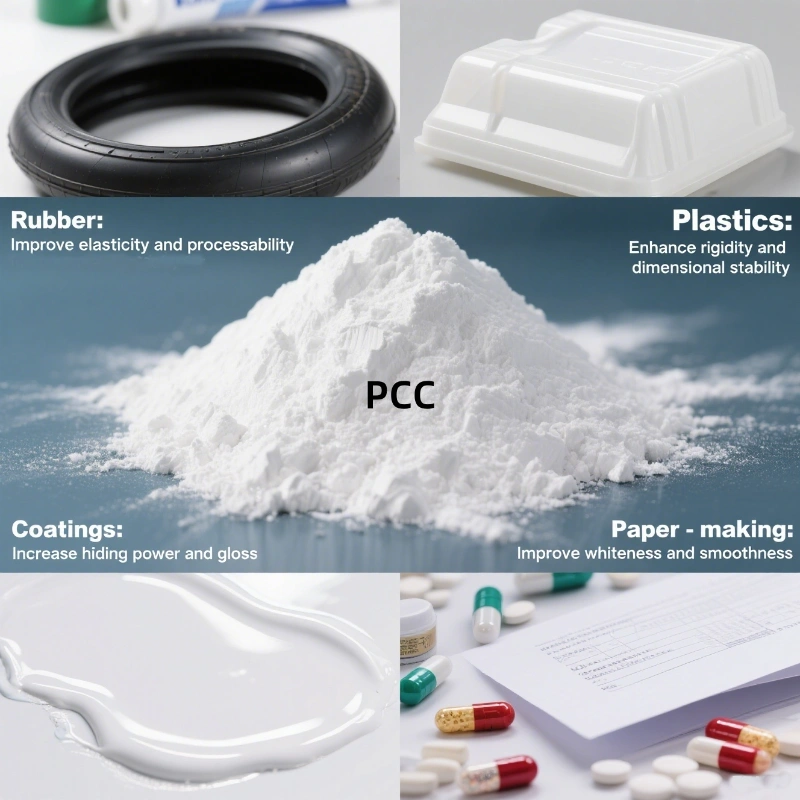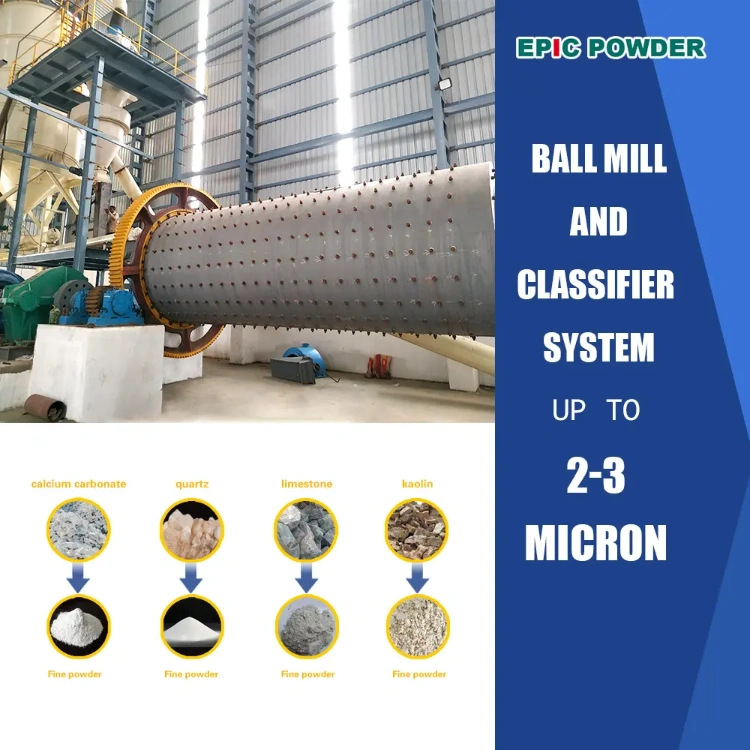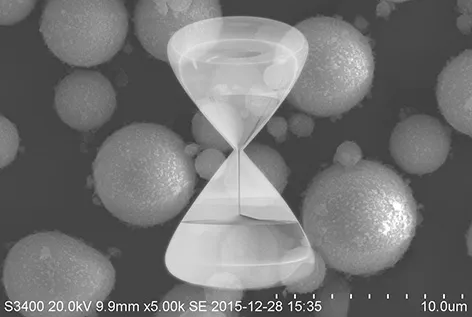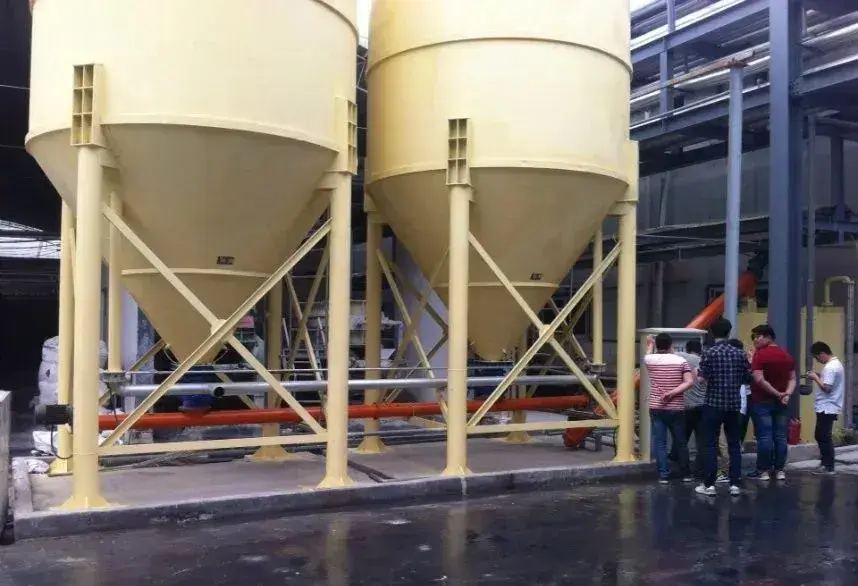Calcium carbonate is the most widely used inorganic filler in polymer composites. In plastics, about 70% of fillers are calcium carbonate. This includes light (PCC) and ground (GCC) calcium carbonate. PCC is produced by chemical reaction. Ultrafine ground (GCC) calcium carbonate is made by grinding natural minerals like calcite, limestone, chalk, or shells.

Technological and Production – related Reasons
Light Calcium Carbonate
Light calcium carbonate, also known as precipitated calcium carbonate, is produced through a chemical precipitation process. The method involves complex steps such as calcining limestone to produce quicklime, which reacts with water to produce hydrated lime. The hydrated lime is then carbonized with carbon dioxide. This process requires high energy consumption and precise control of reaction conditions. And a large number of chemical additives are required to achieve the desired particle size and shape. As a result, light calcium carbonate is relatively expensive to produce. There is also a growing concern about the environmental impact of this chemically intensive process.
In contrast, ultrafine ground calcium carbonate is manufactured through a mechanical grinding process. Advances in grinding technology, such as the development of high-efficiency vertical mills and ultrafine grinding equipment, have enabled the production of heavy calcium carbonate with extremely fine particle sizes that are comparable to or even superior to light calcium carbonate. The mechanical process is more direct and relies mainly on physical crushing and grinding. Compared with the chemical synthesis process of light calcium carbonate, it consumes less energy and produces fewer environmental pollutants. This technological advantage in production makes heavy calcium carbonate more sustainable and cost-effective in the long run. This technological edge in production makes GCC more sustainable and cost – effective in the long run.

Performance and Application
In many applications, ultrafine ground calcium carbonate has shown performance comparable to, or even superior to, LCC. For example, in the paper industry, which is one of the major consumers of calcium carbonate, ultrafine GCC can provide excellent optical properties, such as high brightness and opacity, similar to LCC. It also offers good dispersibility and compatibility with paper – making raw materials, contributing to improved paper strength and smoothness.
In many application areas, ultrafine heavy calcium carbonate has demonstrated comparable or even better performance than light calcium carbonate. For example, in the papermaking industry, one of the main consumer areas of calcium carbonate, ultrafine heavy calcium carbonate can provide excellent optical properties similar to light calcium carbonate. Such as high whiteness and opacity. It also has good dispersibility and good compatibility with papermaking raw materials. It helps to improve the strength and smoothness of paper.
Market Direction
The market demand for calcium carbonate is evolving towards more cost – effective and sustainable solutions. As global competition intensifies, manufacturers across various industries are under pressure to reduce production costs while maintaining product quality. Ultrafine ground calcium carbonate, with its lower production cost and comparable performance, has become an attractive alternative to LCC.
In addition, environmental regulations are becoming increasingly stringent around the world. The chemical production process of LCC faces more regulatory challenges due to its higher energy consumption and potential pollutant emissions. In contrast, the mechanical production of GCC aligns better with environmental protection requirements, making it more likely to gain market share as regulations tighten.
conclusion
Despite the clear advantages of ultrafine ground calcium carbonate, the complete replacement of LCC will not happen overnight. LCC still has some unique applications where its specific particle morphology and surface properties give it an edge, such as in certain high – end paints and coatings. However, as technology continues to advance and the market further matures, the share of ultrafine GCC is expected to increase steadily. In the future, continuous research and development efforts will focus on further optimizing the performance of ultrafine GCC, such as improving its surface modification technology to enhance compatibility with different matrix materials.
Epic powder
Epic Powder, 20+ years of work experience in the ultrafine powder industry. Actively promote the future development of ultra-fine powder, focusing on crushing, grinding, classifying and modification process of ultra-fine powder. Contact us for a free consultation and customized solutions! Our expert team is dedicated to providing high-quality products and services to maximize the value of your powder processing. Epic Powder—Your Trusted Powder Processing Expert !

